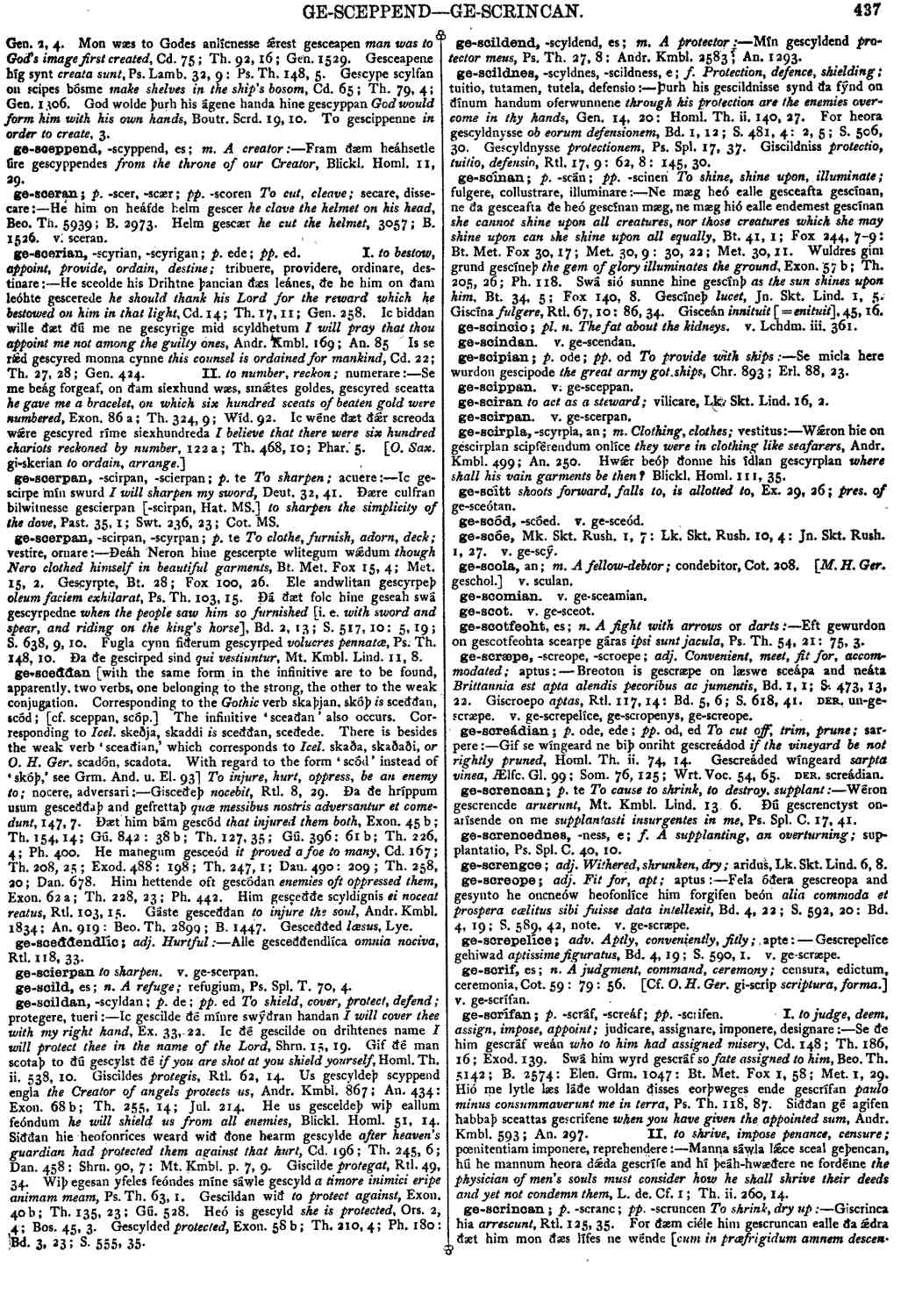ge-sceððan
- verb [ weakstrong ]
-
Gisceðeþ
nocebit,
- Rtl. 8, 29.
-
Ða ðe hríppum usum gesceððaþ and gefrettaþ
quæ messibus nostris adversantur et comedunt,
- 147, 7.
-
Ðæt him bám gescód
that injured them both,
- Exon. 45 b; Th. 154, 14; Gú. 842: 38 b; Th. 127, 35; Gú. 396: 61 b; Th. 226, 4; Ph. 400.
-
He manegum gesceód
it proved a foe to many,
- Cd. 167; Th. 208, 25; Exod. 488: 198; Th. 247, 1; Dan. 490: 209; Th. 258, 20; Dan. 678.
-
Him hettende oft gescódan
enemies oft oppressed them,
- Exon. 62 a; Th. 228, 23; Ph. 442.
-
Him gesceððe scyldignis
ei noceat reatus,
- Rtl. 103, 15.
-
Gáste gesceððan
to injure the soul,
- Andr. Kmbl. 1834; An. 919: Beo. Th. 2899; B. 1447.
- Gesceððed læsus, Lye.
Bosworth, Joseph. “ge-sceððan.” In An Anglo-Saxon Dictionary Online, edited by Thomas Northcote Toller, Christ Sean, and Ondřej Tichy. Prague: Faculty of Arts, Charles University, 2014. https://bosworthtoller.com/15882.
Checked: 0